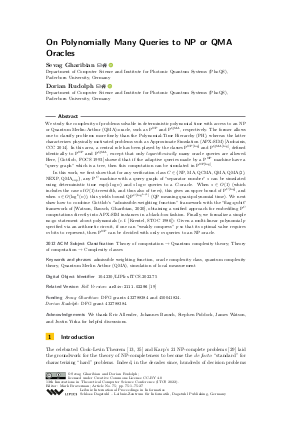LIPIcs.ITCS.2022.75.pdf
- Filesize: 1.19 MB
- 27 pages

 Creative Commons Attribution 4.0 International license
Creative Commons Attribution 4.0 International license









Feedback for Dagstuhl Publishing